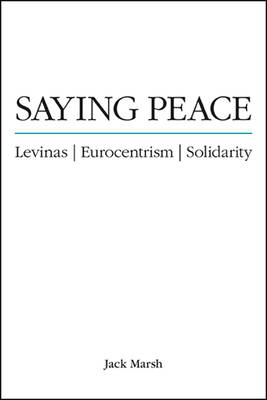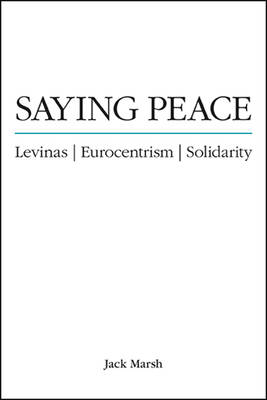
- Retrait gratuit dans votre magasin Club
- 7.000.000 titres dans notre catalogue
- Payer en toute sécurité
- Toujours un magasin près de chez vous
- Retrait gratuit dans votre magasin Club
- 7.000.0000 titres dans notre catalogue
- Payer en toute sécurité
- Toujours un magasin près de chez vous
Description
Offers an immanent critique of Levinas's core philosophical proposals by reference to his allegedly eurocentric statements.
Levinas's big idea is that our lived sense of moral obligation occurs in an immediate experience of the otherness of the Other, and that moral meaning is grounded in alterity rather than identity. Yet he also held what seemed an inconsiderate, or "eurocentric," view of other cultural traditions. In Saying Peace, Jack Marsh explores this problem, testing the coherence and adequacy of Levinas's central philosophical claims. Using a twofold method of reconstruction and critique, Marsh conducts a holistic immanent evaluation of Levinas's major works, showing how the problem of eurocentrism, and abiding ambiguities in Levinas's political and religious thought, can be traced back to specific problems in his general philosophical methodology. Marsh offers an original analysis of Levinas's method that verifies and extends existing critical work by Jacques Derrida, Robert Bernasconi, Judith Butler, and others. This is the first book to foreground the normative question of chauvinism in Levinas's work, and the first to perform a holistic critical diagnosis of his general philosophical method.
Spécifications
Parties prenantes
- Auteur(s) :
- Editeur:
Contenu
- Nombre de pages :
- 386
- Langue:
- Anglais
- Collection :
Caractéristiques
- EAN:
- 9781438482644
- Date de parution :
- 02-07-22
- Format:
- Livre broché
- Format numérique:
- Trade paperback (VS)
- Dimensions :
- 152 mm x 229 mm
- Poids :
- 566 g

Les avis
Nous publions uniquement les avis qui respectent les conditions requises. Consultez nos conditions pour les avis.






